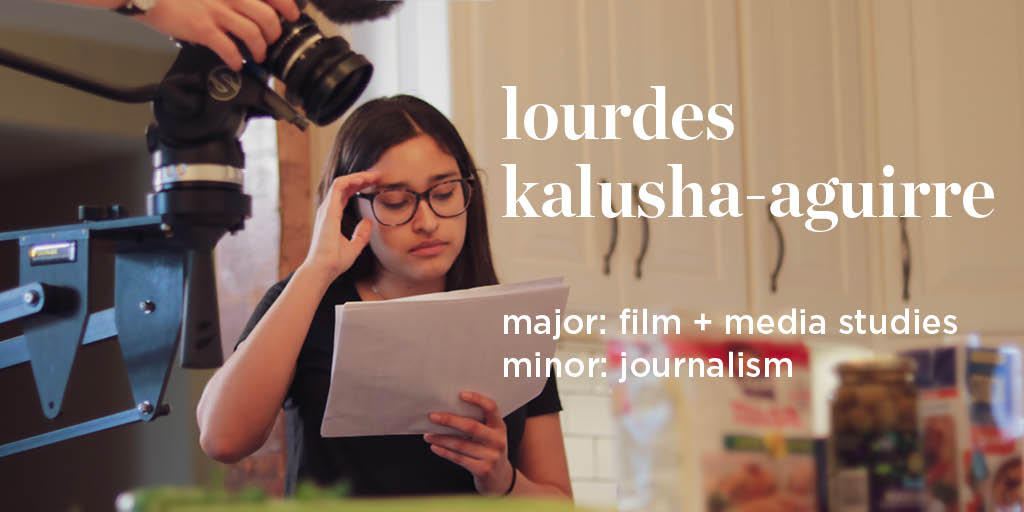
Lourdes Kalusha-Aguirre knew from a young age that she wanted to make movies. With her Film & Media Studies major and Journalism minor, the KU senior has been able to build a network of talented actors, writers, editors and cinematographers to live out her dreams. Now, several of the films she’s created have won awards, including a 2019 Brosseau Creativity Award from the Spencer Museum of Art, and been screened as part of major events like the New York Latino Film Festival.
Learn more about the projects she’s working on, how her major and minor work hand in hand and why story is a central — and often personal — aspect of her films.
Where are you from? And why did you decide to come to KU?
I’ve lived in Lawrence most of my life, and I’m a third generation Jayhawk, so KU has always felt like home. I love Lawrence and being close to family, and the academic support of the KU Honors program and the financial support from KU’s scholarship for National Hispanic Scholars helped me finalize my decision.
Why did you choose your major and minor?
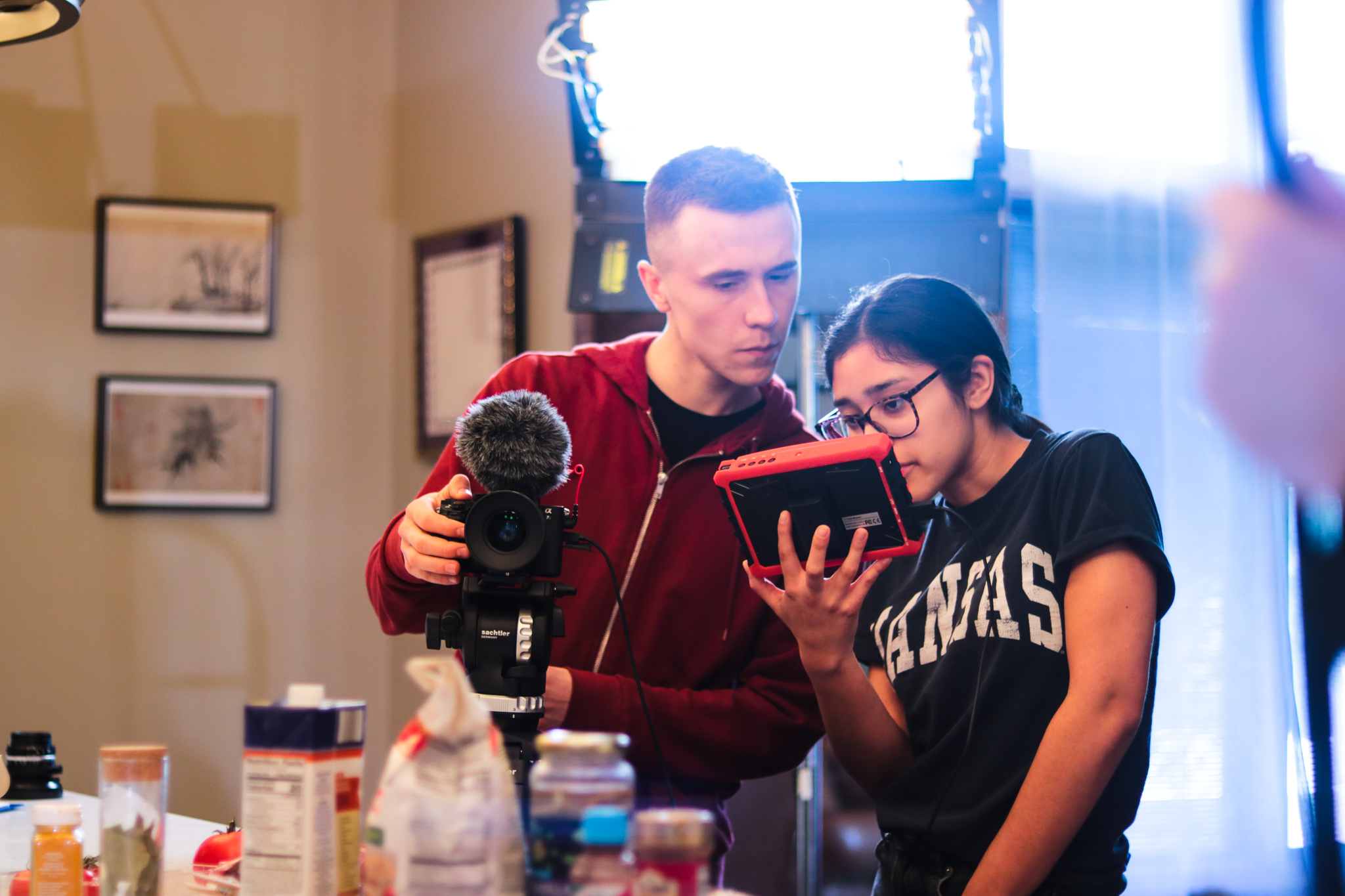
I’ve known since I was in middle school that I wanted to make movies, and I’d been drawn to journalism after being on my high school newspaper’s staff. Over time I realized what I loved about both film and journalism was the opportunity to tell stories and make people be seen and heard. In industries that suffer from a lack of diversity, and have often upheld systems of oppression, I felt my voice could be powerful and important to break down walls for other people who are underrepresented in media.
What is the most exciting part of your programs?
What I find most exciting about film and journalism is the opportunity to be investigate the world around me. With film, I benefit a lot from observing people and relationships, which makes my writing stronger in creating complex characters and stories. In journalism, I get to peek into people’s lives when I interview them and research a story, which is always enlightening.
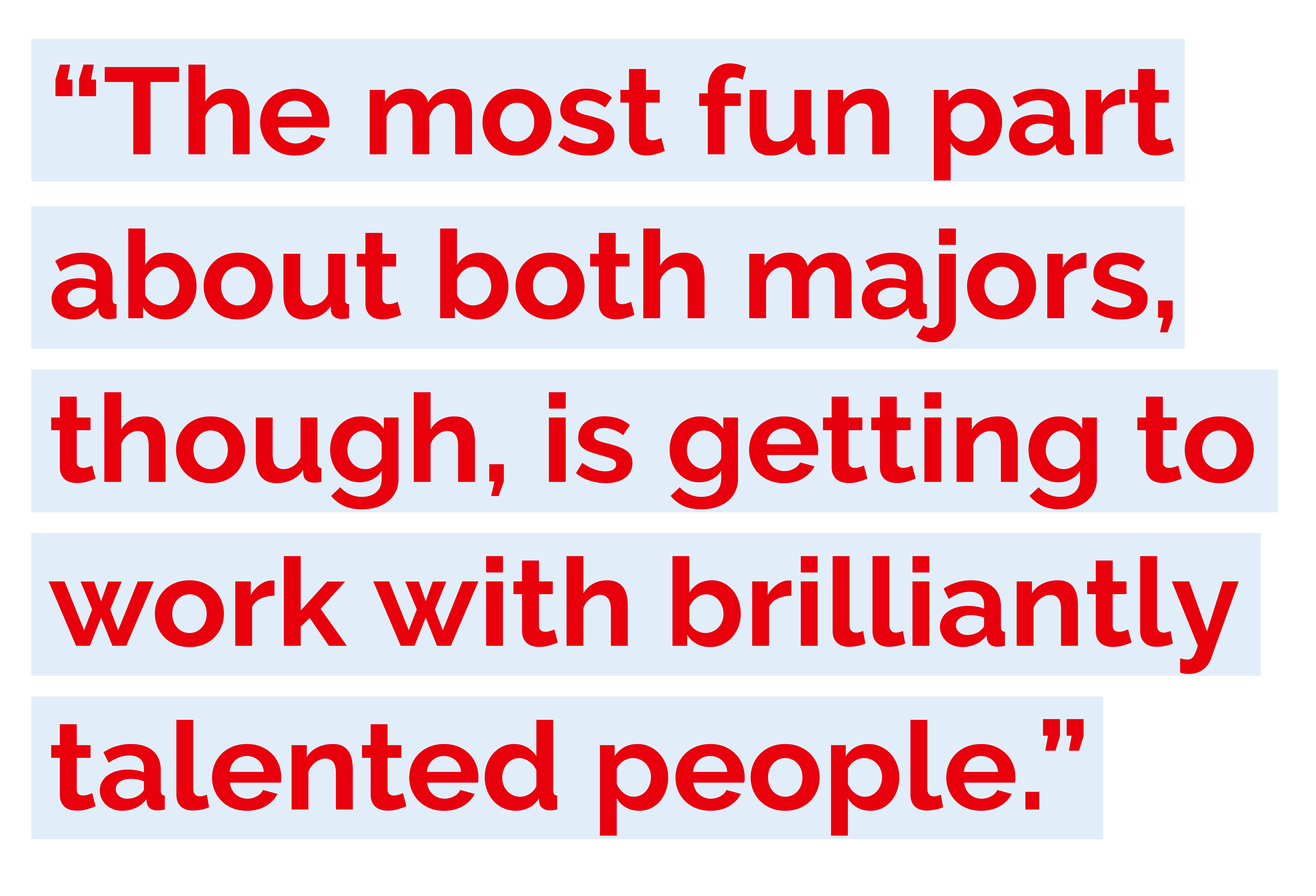
The most fun part about both majors, though, is getting to work with brilliantly talented people. The staff at the UDK constantly amazes me with how much detail and effort they put behind reporting, and serving the community through journalism. In film, I’ve met so many amazing actors, writers, editors and cinematographers at KU and while abroad, that make me so excited for the future of film. And there’s just the joy of getting to create something together.
Tell us about recent projects you’ve been working on or upcoming projects that are in the works.
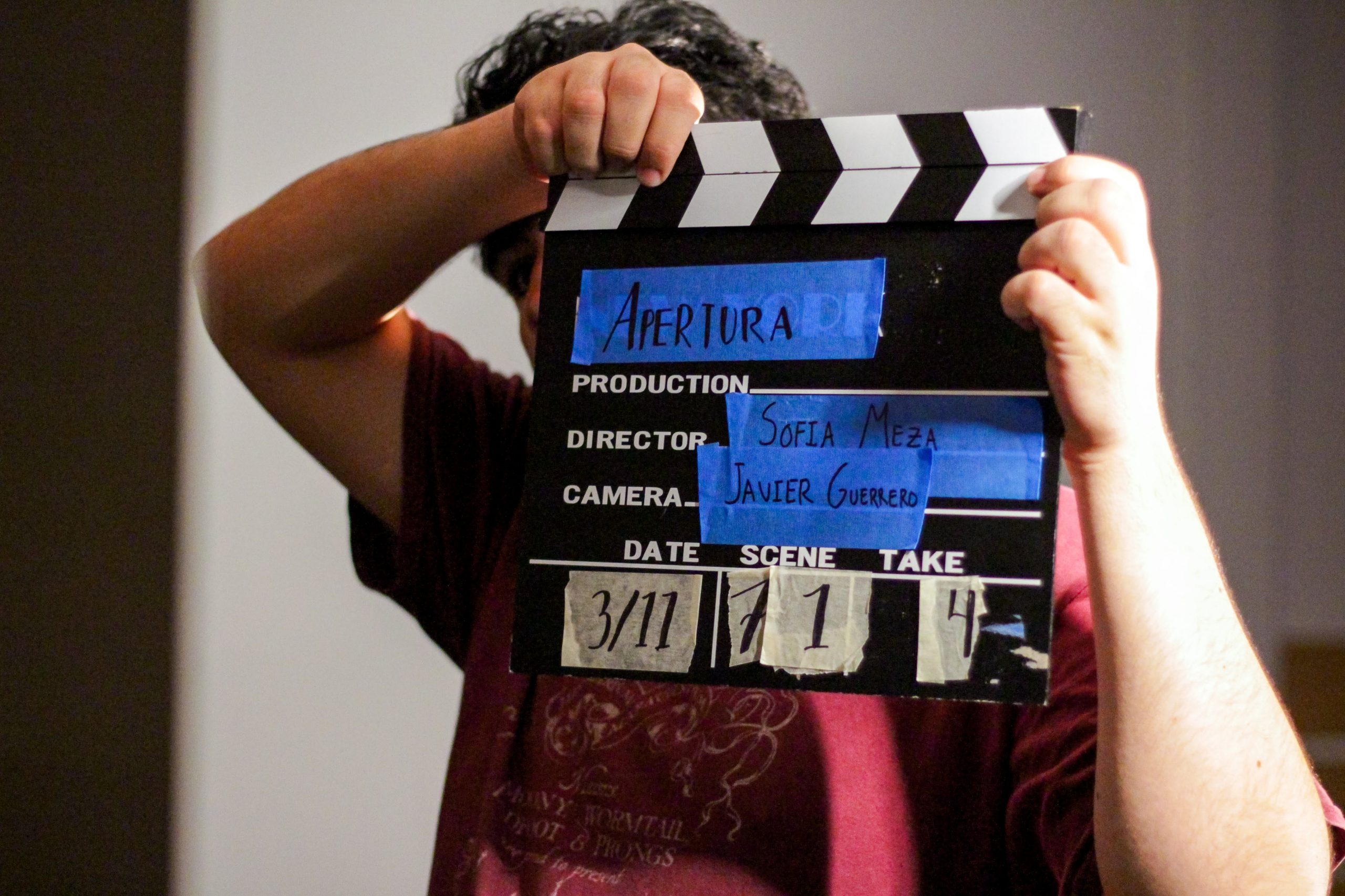
Recently the film I produced in Costa Rica was accepted into the New York Latino Film Festival, which was huge news for us. My favorite director is Barry Jenkins, whose film Moonlight basically convinced me to be a filmmaker, and a film he worked on is going to play at the same festival. It was a super surreal moment to see our film in the same festival lineup, and in an article in Deadline!
We worked on that project, called Apertura, in Fall 2019, which was the semester I took abroad at the University of Costa Rica. It was a musical, which was incredibly ambitious and definitely a challenge for me as a producer. But I could just see how talented everyone was and was so psyched to help bring the whole project to life, and we did! I’d never worked on a project of that scale, and so many people from the film industry in Costa Rica showed up to our set to help, which was incredible.
What themes or ideas do you explore through your work?
Right now I’m really focused on how we can use stories to connect the personal and political. My experimental short that won the Brosseau Creativity Award last year was centered around an interview I did with my mom, where I was able to talk to her about her experiences growing up during the Salvadoran Civil War. She heard bombs go off in her neighborhood often, and in college she interviewed people who had been targeted by the right-wing death squads.
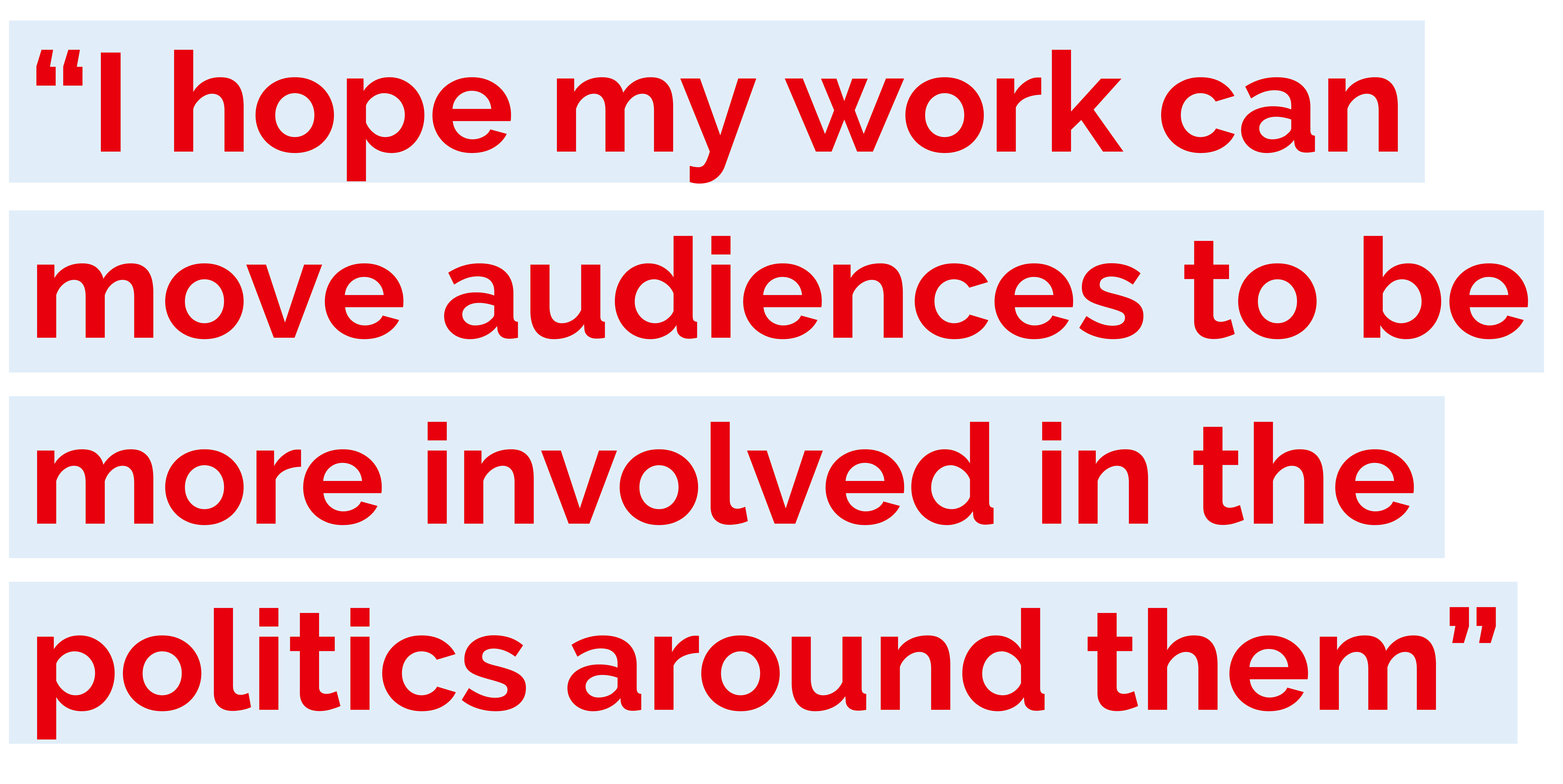
The right-wing was funded by the U.S., and some of the worst massacres they committed were carried out by soldiers trained in U.S. counterinsurgency programs. Through my home-videos and archival footage of the war, I was exploring what it means for me to have grown up with such a different experience from my mother, and how what might have been “just politics” for the country I was raised in had devastating effects for her home country.
I hope my work can move audiences to be more involved in the politics around them, and see how policy shapes people’s lives. I hope people realize that the institutional violence around us is not normal, that as a country we should not be withholding aid from the very people who we’ve historically terrorized.
What is the benefit of being in the KU College alongside students studying sciences, arts and humanities?
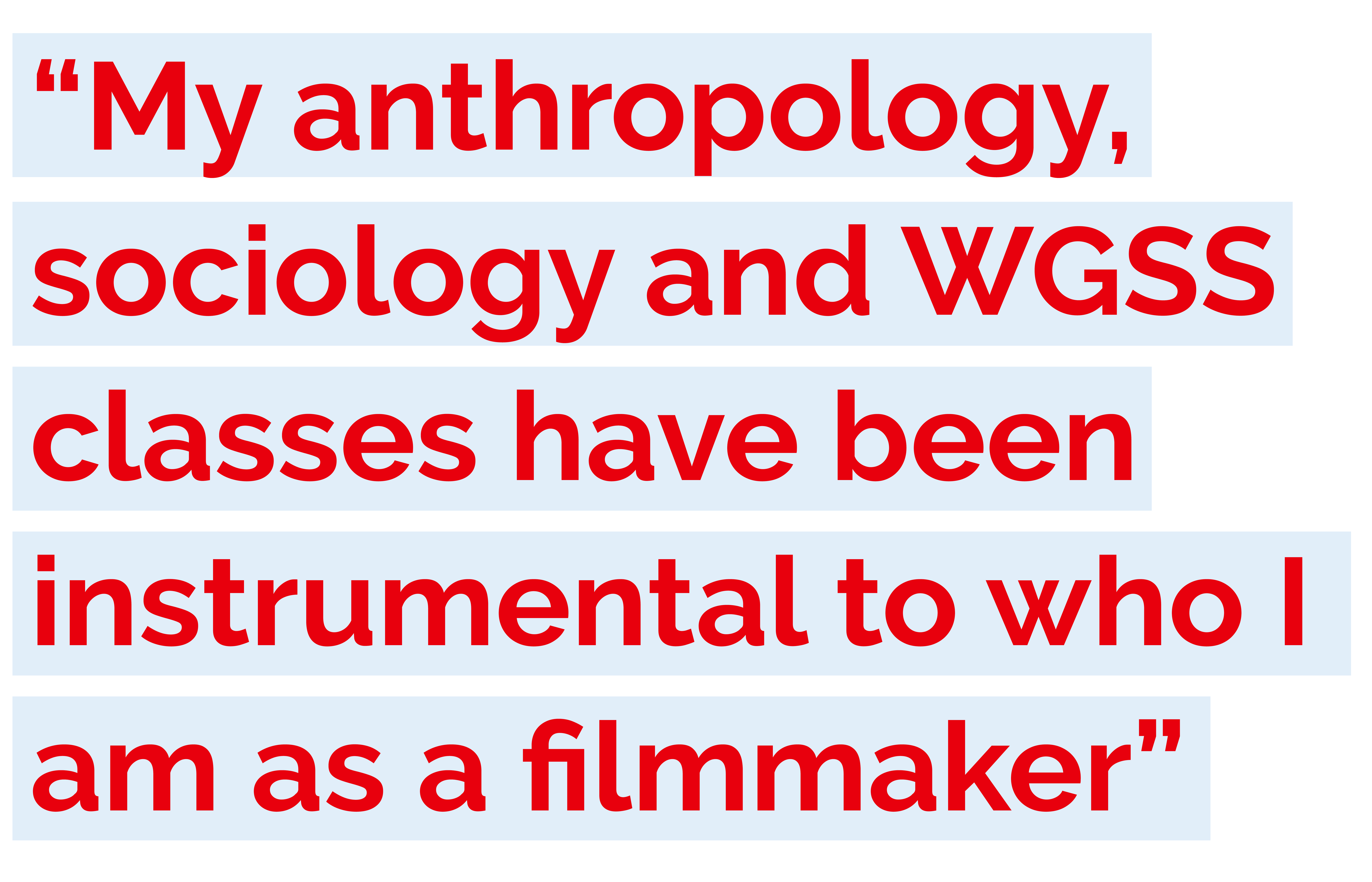
It’s really critical to have an interdisciplinary education, and that is something that KU has given me. My anthropology, sociology and WGSS classes have been instrumental to who I am as a filmmaker, and I hope everyone gets to benefit from a broad education like the one I’ve had here.
Give a shout-out to a professor, mentor, advisor, or someone at KU who has helped you?
Wow there are so many! Dr. Nicole Hodges Persley has been a mentor to me since freshman year, and her honors seminar on Kanye West forever changed how I think about art. Kevin Willmott’s screenwriting courses really helped me grow as a writer, and seeing him win that Oscar will always inspire me. And Laura Kirk’s Acting for the Camera course made me an infinitely better director.
What would you tell your freshman self?
That it’s gonna go by so fast! And to join groups like KU Screenwriters and the UDK sooner, I promise people are super nice and you’re gonna do some of your best work there.
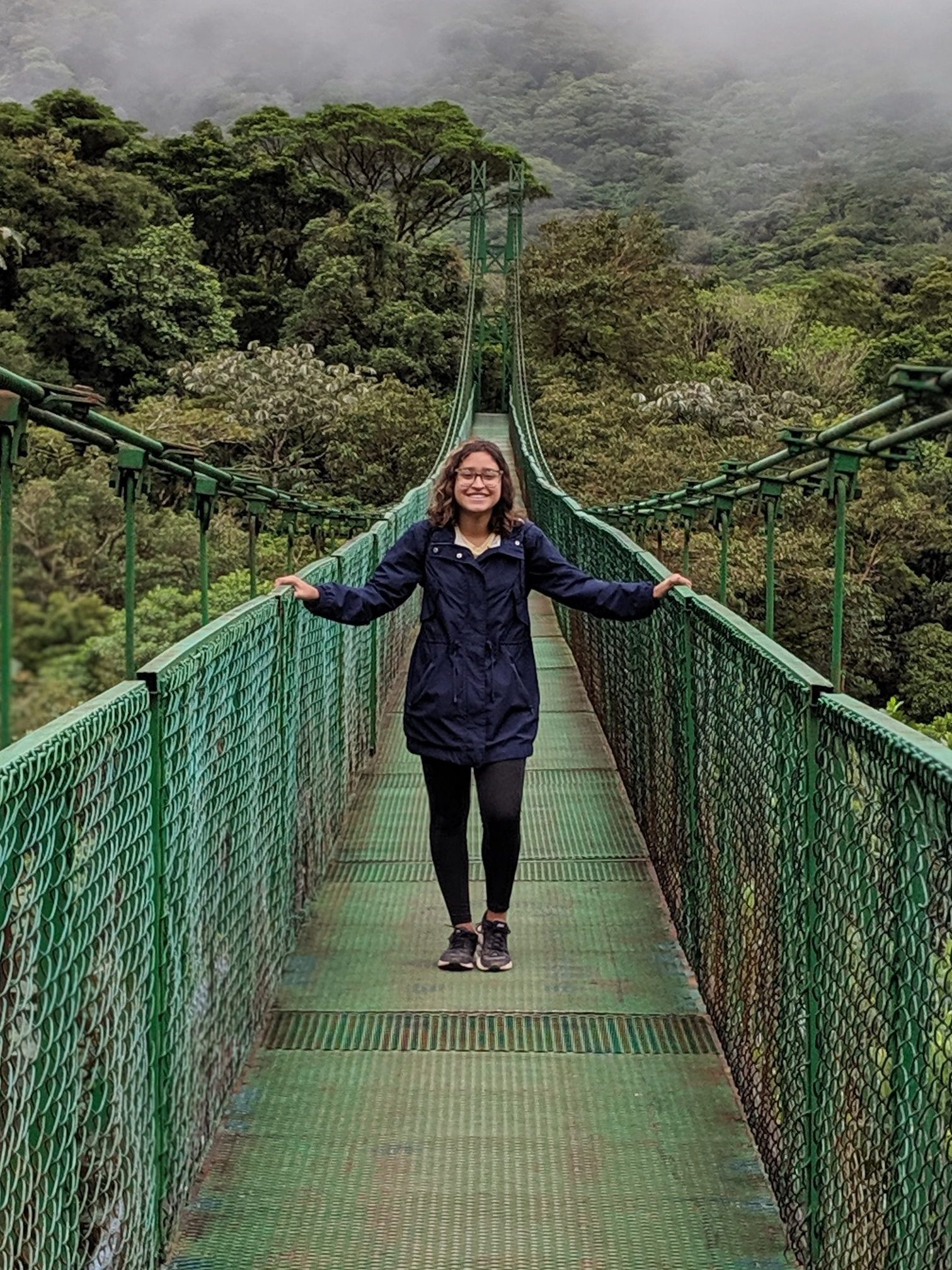
What do you want to do when you graduate?
I really just want to tell stories that make the world a better place. That might look like producing my own films and working my way through the film industry, or reporting on issues I care about, or both at once.
What motivates you?
I’m super lucky to have a supportive family, and parents and siblings that inspire me. I want to tell stories that expose injustice so eventually the world can be better for my younger siblings, and I want them to have the representation on screen I didn’t have as a kid.
Meet more of our students. For more information, explore the Department of Film & Media Studies at the University of Kansas.